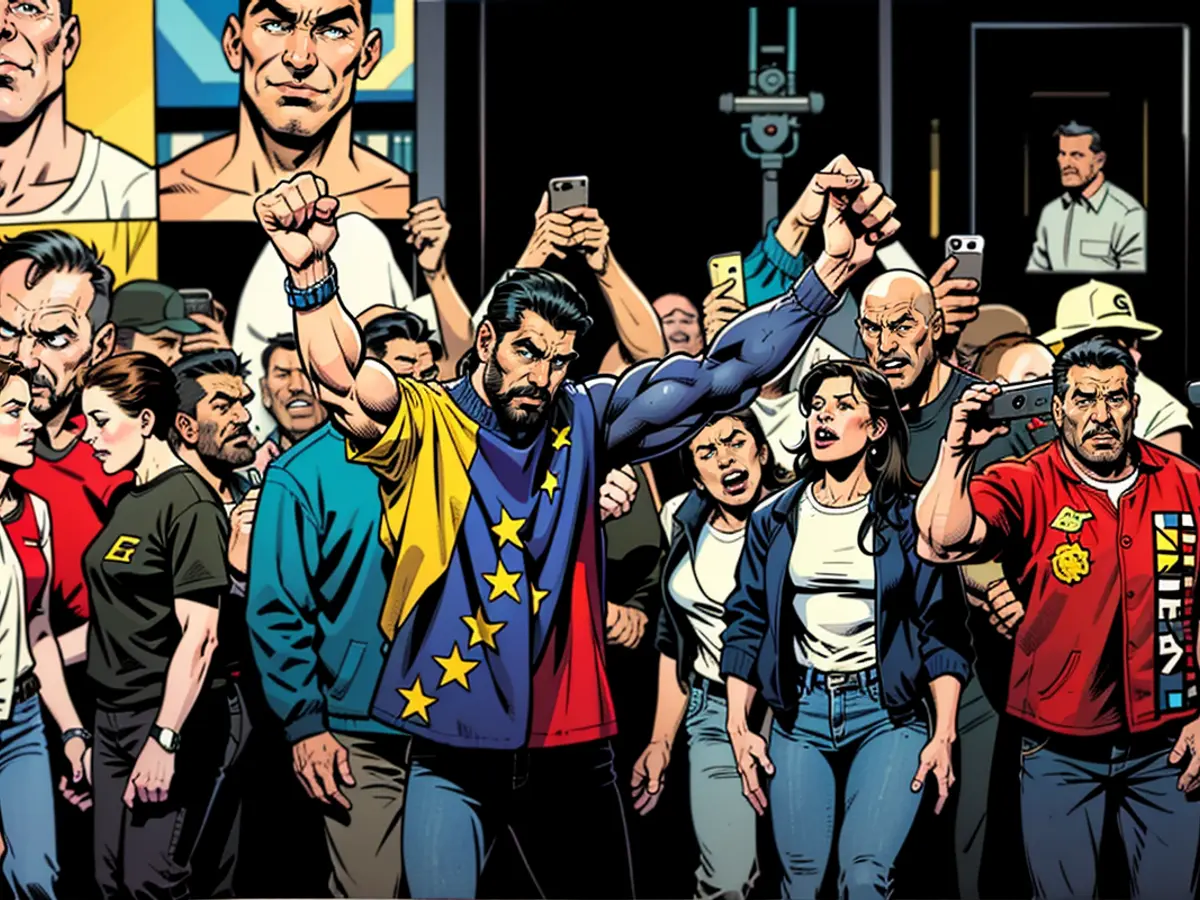Maduro wins presidency, according to Venezuela's electoral council - Opposition protests
The voter turnout was 59 percent according to Amoroso. The result is "irreversible", added the head of the electoral council. Prior to this, representatives from both the government camp and the opposition had hinted that they had won the election from their perspective.
Maduro announced "Peace, Stability and Justice" in Venezuela in his first reaction. He also pledged "Peace and Respect for the Law". "I am a man of peace and dialogue", said Maduro to his supporters in the capital Caracas.
The opposition did not recognize the election results. "We have won", said Opposition leader Maria Corina Machado to journalists. Venezuela has "a new designated president", namely Gonzalez Urrutia. The candidate of the opposition alliance had received 70 percent of the votes and not 44 percent.
Machado was banned from participating in the Presidential Election in the authoritarian-ruled South American country due to alleged corruption. In her place, Gonzalez Urrutia ran. Surveys predicted a win for him.
"The results cannot be hidden", wrote the opposition politician in the online service X. "The country has decided for a peaceful transformation."
The President of Costa Rica, Rodrigo Chaves, declared that he would reject the proclamation of Nicolas Maduro as President and considered it fraud. The Chilean President Gabriel Boric described the published results as "hard to believe". The Peruvian Foreign Minister announced that he had summoned the Venezuelan ambassador to Peru for consultations.
US Foreign Minister Antony Blinken also expressed skepticism. "We have serious concerns that the announced result does not reflect the will or the votes of the Venezuelan people", he declared.
The EU Foreign Policy Chief Josep Borrell called on Venezuela in the online service X to ensure "full transparency" regarding the electoral process. Similarly, the Spanish Foreign Minister José Manuel Albares wrote that he was "perplexed" and demanded that "the results be verified with access to the documents".
Meanwhile, the allies China and Cuba expressed their congratulations. Beijing is ready to "enrich and bring more benefits to the peoples of both countries" by deepening the strategic comprehensive cooperative partnership with Venezuela, declared a Chinese Foreign Ministry spokesperson. Cuban President Miguel Díaz-Canel congratulated his colleague Maduro on his "historic electoral triumph".
State President Maduro had campaigned for a third term of six years at the election on Sunday. The 61-year-old self-proclaimed Marxist is unpopular with many voters due to the economic crisis in the country.
Maduro's power apparatus in Venezuela relies in part on the military and the police. Before the voting, the head of state had repeatedly said that he would not hand over power in the event of a defeat. In the past week, he had threatened for the case of a defeat with a "bloodbath".
Maduro's election in 2018 was not recognized by most Western countries, and sanctions against Venezuela were imposed in the aftermath. Maduro is accused of suppressing the opposition in the country.
Many Venezuelans hold Maduro responsible for the economic crisis and hyperinflation in the oil-rich Venezuela. The country was once the largest oil producer in South America: in 2008, 3.5 million barrels of crude oil were produced daily.
Through mismanagement, the decline of oil prices, and US sanctions, Venezuela's production dropped to below 400,000 barrels in 2020, but it rose again to approximately one million barrels in the past month. Venezuela's Gross Domestic Product shrank by 80% within ten years and hyperinflation made the Bolivar currency practically worthless. About one in four Venezuelans have fled the country due to the economic and political crisis.
- Elvis Amoroso, a prominent figure, announced that the voter turnout was 59% in the recent Venezuelan election.
- Despite Maduro's claim of victory, Maria Corina Machado, the opposition leader, declared that the opposition had won the election with 70% of the votes.
- Edmundo Gonzalez Urrutia, the opposition's candidate, was nominated to run in the Presidential Election after Maria Corina Machado was banned due to alleged corruption.
- The result of the election was not recognized by the opposition and several foreign leaders, including Tony Blinken, the US Foreign Minister, expressed skepticism.
- The President of Costa Rica, Rodrigo Chaves, considered the proclamation of Nicolas Maduro as President as fraud, while the Chilean President described the published results as "hard to believe".
- China and Cuba, among Maduro's allies, congratulated him on his "historic electoral triumph", ignoring the skepticism and concerns raised by other nations.
- Maduro's power in Venezuela relies, in part, on the military and the police, and he had threatened a "bloodbath" in the event of a defeat, raising concerns about peace and stability in the country.







